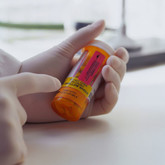Policies & Legislation
2012’s biggest patent expiries
Once the patent expiries set for 2011 are gone it is not over for the pharmaceutical industry, as 2012 looks set to be another bumper year for generics, with patents from more of the biggest selling drugs set to expire.
Change in Canadian exclusivity period may harm generics
The EU is in negotiations for a comprehensive economic and trade agreement (CETA) with Canada. As part of these negotiations the EU has proposed changes to the length of data exclusivity for originator drugs in Canada to bring them in line with time periods used in the EU.
2011’s biggest patent expiries
2011 looks set to be a bumper year for generics, with patents from some of the biggest selling drugs set to expire.
Still no word from FDA on generic user fees
Well the FDA finally held its long-awaited meeting on generic user fees on 23 February 2011. However, since then there has been no news from the FDA as to when and how these user fees will be implemented, and more importantly how much they will cost and what will the review timelines be?
European Council gives go-ahead for EU patent – but is it legal
The European Council announced that it had given the go-ahead on 10 March 2011 for use of a rarely used provision of the Lisbon Treaty known as ‘enhanced cooperation’ to launch a common EU patent system without Italy and Spain on board.
Falsified medicines law approved by European Parliament
Following many months of negotiations, a new law to prevent fake medicines from entering the supply chain was finally approved by the European Parliament on 16 February 2011. Internet sales will also be covered by the law, which introduces new safety and traceability measures as well as sanctions against counterfeiters. The law, which has been in the pipeline for over two years, still needs to be formally approved by the Council of Ministers.
Negotiations on generic drug user fees
Things seem to be finally moving ahead with the FDA’s long-awaited attempt to create a system of user fees for assessing generic drugs. The US Agency [FDA], which has a backlog of more than 2,000 products to review and has been short of funds for years, will launch negotiations with generic drug manufacturers by the end of February 2011.
Australian copyright law amended to benefit generic medicines
On 22 February 2011 the Australian Senate Legal and Constitutional Committee introduced into Federal Parliament the Therapeutic Goods Legislation Amendment (Copyright) Bill.
More debate over ‘pay-to-delay’ legislation in the US
Two US Senators and now President Barack Obama in his 2012 budget proposal have re-introduced the debate over proposed legislation that would curb—or even ban—‘pay-for-delay’ deals.
Generic pre-emption: what are the implications
Although it has been rejected by several lower courts, generic pre-emption is not yet ‘dead and buried’ as the Supreme Court now takes on the case.













